Musings
The Olive Oil Sham
The Olive Oil Sham
So, you think you’re cooking with Olive Oil, the magical elixir of health? Well, think again!! Several weeks ago Mike was directed to this article by his esteemed Twitter pal, Alton Brown. Since Mr. Brown is a reputable representative of the food industry we considered the article worthy of our attention. Give a read yourself - I promise you’ll be as appalled as we were.
Not every aspect of the article was applicable to us. For example, we are not ones to cook with saffron or enjoy Kobe beef. The information on honey, chicken, and salmon was certainly alarming. But what really caught our attention was the segment addressing olive oil. We cook almost exclusively with olive oil. In fact, given its richness in Omega-3 fatty acids we indulged in olive oil to aid in our specific ailments (blood pressure, cholesterol, and skin health).
To learn that what is marketed as olive oil is actually not olive oil at all, but rather another oil altogether, for example, sunflower or safflower oil, was particularly upsetting. What is more, the “olive oil” we were consuming so much of is actually laden with Omega-6 fatty acids which are actually harmful to our ailments when ingested to excess! All this time we thought we were making wise and healthful decisions only to discover we were being duped by marketing!
We did some internet research and found a few methods (though somewhat disputed) to try to tell if what you have as “olive oil” is truly olive oil. Some sources conclude that if you put your olive oil in the refrigerator it will solidify in 24-48 hours if it is truly olive oil. Other sources indicate that if what you have is olive oil that when refrigerated it will cloud over and crystallize in 24-48 hours. Most sources seem to agree that if your refrigerated olive oil remains unchanged after 24-48 hours then it is not olive oil.
Being a scientist and an engineer we had to carry forth our own experiment. We tested three presumed olive oils, 1) Felippo Berio (acquired from Costco), 2) Whole Foods 365 brand, and 3) Manzanillo from Cleo’s Fine Oils and Vinegars - a “boutique” of sorts out of Annapolis, MD. The Manzanillo wine is from California and is approved by the COOC (California Olive Oil Council). I mixed all three oils with a balsamic vinegar for two reasons: 1) provide better visualization once the oil and vinegar separate and 2) provide a sort of nuclei upon which the oil may solidify.
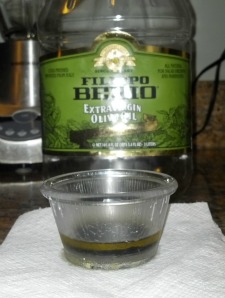 |
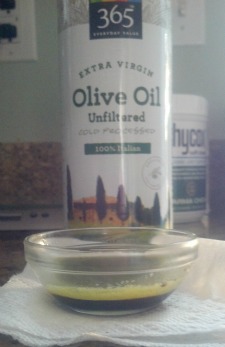 |
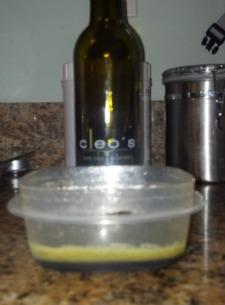 |
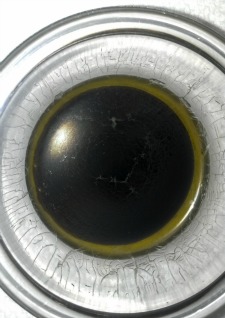 |
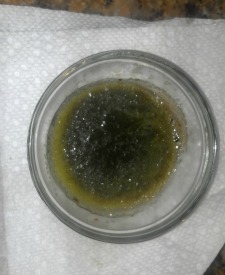 |
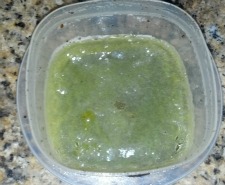 |
Pictured from left to right are Felippo Berio, Whole Foods 365, and Cleo’s. After the 24-48 hour trial period the Felippo Berio oil remained unchanged. It was still very clear. The Whole Foods 365 oil clouded over and crystallized. It never became solid, but it was no longer clear like it is at room temperature. The Cleo’s oil completely solidified.
Bottom line, refrain from buying Felippo Berio. That good deal you got at Costco is hardly worth it unless you spell “deal” s-h-a-m. Is the Whole Foods 365 oil truly olive oil? Maybe. It seems if it is not entirely olive oil it is certainly comprised of olive oil in some significant percentage. As for Cleo’s olive oil, this appears to be the real deal. In general, it is in your best interest to buy a domestic olive oil, especially one from California. The domestic oil has more oversight (e.g., COOC) and because it does not have to imported it will be less subject to degradation.
Folks, if you are at all aware of your diet and trying to make healthful and conscientious choices you really need to do your homework. While food labels are there to inform us, you cannot trust them. Marketing tactics are knowingly malicious and most of the food corporations have no conscious - they just want to make a buck. We can’t even rely on the FDA to properly police these nefarious activities. Please take a moment to do some research before blindly believing product labels and marketing ploys.
